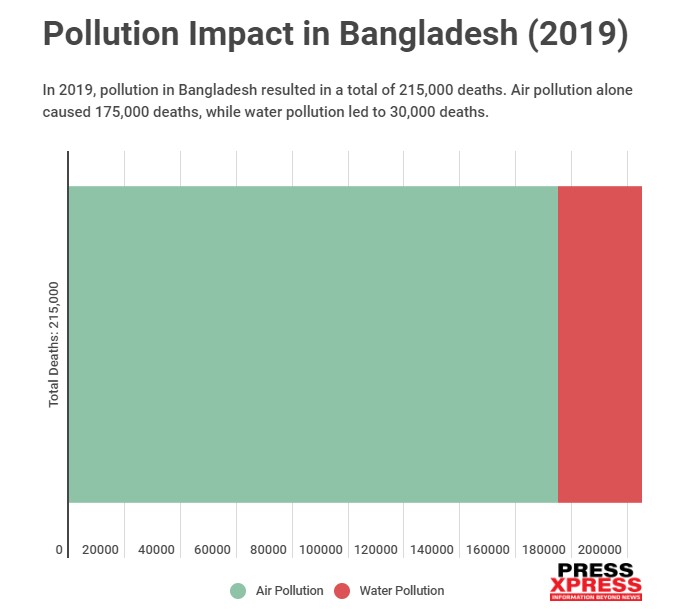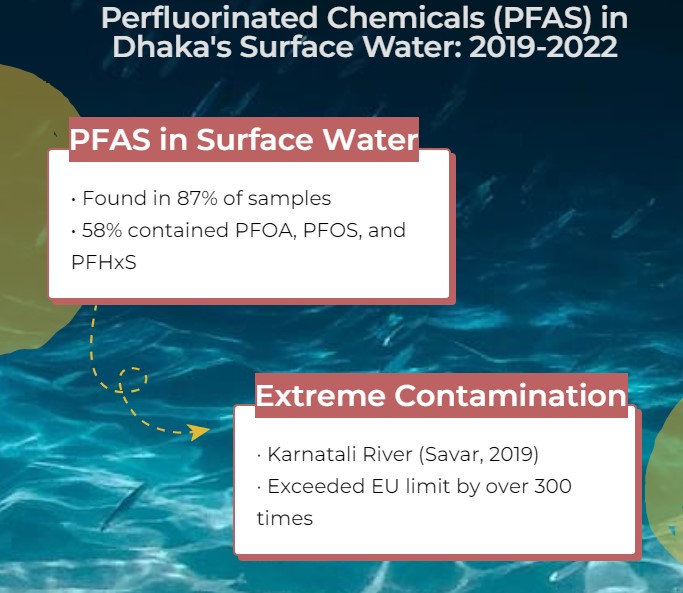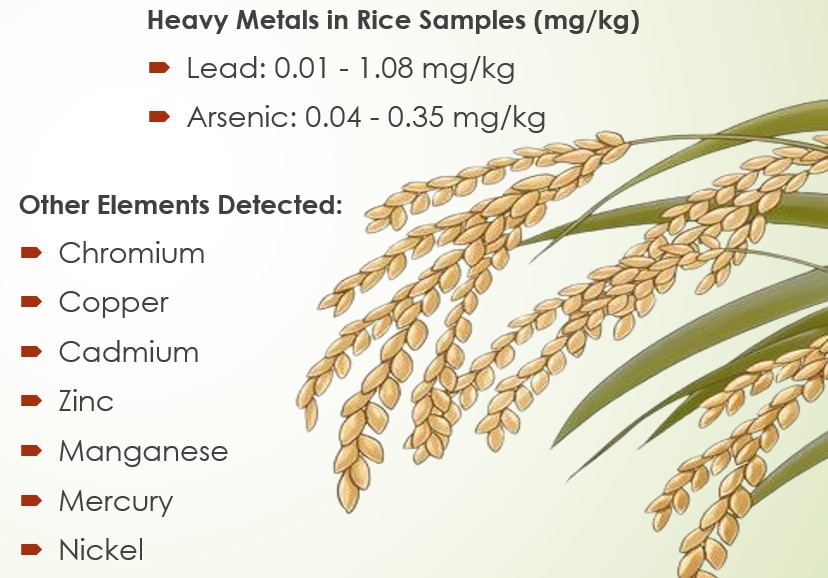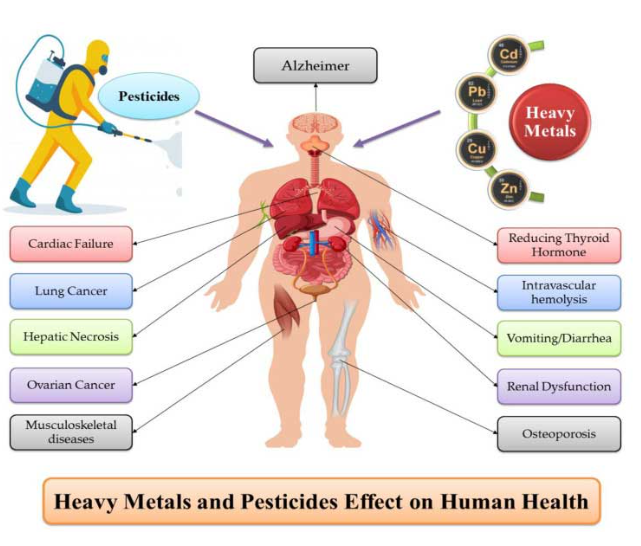Key Highlights:
- In 2019, over 215,000 lives in Bangladesh succumbed to pollution
- Water pollution in Bangladesh has dire consequences for public health, resulting in frequent diarrhea and cholera outbreaks and a range of other diseases
- From 2019 to 2022, researchers tested 31 samples across eight areas of Dhaka, revealing concerning findings
Could the food on your plate be silently poisoning you? If you’re wondering, the answer’s a resounding ‘Yes’. In 2024, Bangladesh faces a staggering dilemma as heavy metals infiltrate its food chain, posing grave threats to public health. While global concerns over heavy metals in food are not new, recent data paints a stark picture: Bangladesh is grappling with levels far exceeding international safety norms.
You Can Also Read: HOW BANGLADESH IS ENSURING FOOD FOR ALL
In 2019, over 215,000 lives in Bangladesh succumbed to pollution. The devastating impact of air pollution alone accounted for around 175,000 deaths, while water pollution contributed to another 30,000 fatalities. The Lancet’s report “Pollution and Health: A Progress Update” emphasizes additional threats like soil contamination, lead pollution, and occupational hazards involving harmful chemicals, compounding the grim toll.

Amidst daily routines of breathing, drinking, eating, and touching, many encounter unnoticed dangers. Globally, the World Health Organization (WHO) mandates a permissible lead (Pb) limit of 0.1 mg/kg in most food items. However, studies in Bangladesh reveal some vegetables and fruits exceed this, with levels surpassing 0.2 mg/kg, posing serious health risks.
Similarly, WHO guidelines set a cadmium (Cd) limit at 0.05 mg/kg, yet Bangladeshi rice samples often reach 0.1 mg/kg—double the safe threshold.
Concerns also arise over arsenic (As) in rice, exceeding recommended limits. Furthermore, WHO advisories on mercury in fish highlight coastal Bangladesh’s fish samples, showing levels up to 1.5 mg/kg—exceeding safe consumption levels and spotlighting a critical public health issue.

Industry’s Deadly Gift to Waterways
Water pollution in Bangladesh has dire consequences for public health, resulting in frequent diarrhea and cholera outbreaks and a range of other diseases. Industries have historically discharged untreated chemical and factory wastes into rivers, turning once life-sustaining waters toxic. This degradation has worsened severe skin diseases and cancer linked to water contamination.
A recent study titled “Persistent Threat: Per- and polyfluoroalkyl substances (PFAS) in textiles and water in Bangladesh,” conducted by NGOs Environment and Social Development Organisation (ESDO) and International Pollutants Elimination Network (IPEN), highlights the severity.
From 2019 to 2022, researchers tested 31 samples across eight areas of Dhaka, revealing concerning findings. PFAS were found in 87% of surface water samples, with 58% containing globally banned chemicals like Perfluorooctanoic acid (PFOA), Perfluorooctanesulfonic acid (PFOS), and Perfluorohexane sulfonate (PFHxS).
19 samples exceeded proposed EU regulatory limits, indicating significant health risks such as cancer, birth defects, impaired immunity, and liver damage from PFAS exposure. Notably, in 2019, Karnatali River in Savar recorded PFAS levels exceeding the EU limit by over 300 times, with concentrations of banned substances up to 54,000 times the current Dutch advisory limits.
By 2022, Hatirjheel Lake also showed alarming contamination levels, highlighting the urgent need for comprehensive water quality management strategies in Bangladesh.

Common Rice Varieties Tainted with Toxic Metals
Arsenic and lead have been identified in alarming concentrations in various rice samples, posing serious health risks. Published on 14th May 2022 in the peer-reviewed open access journal ‘Plos One’, the study collected samples of 10 commonly consumed rice varieties from four wholesale markets in Dhaka city: Nazirshail, Miniket, Pajam, Katari, Basmati, Kalijira, Chinigura, BRRI-32, Bashful, and Lal biroi.
Analysis of these rice samples revealed harmful levels of heavy metals and toxic elements such as arsenic, lead, chromium, copper, cadmium, zinc, manganese, mercury, and nickel. The study stressed the carcinogenic and non-carcinogenic health risks associated with these contaminants in the human body.
According to the researchers, the permissible limit for lead set by the United States Environmental Protection Agency (USEPA) is 0.000001 mg/kg. However, the study found lead levels in rice ranging from 0.01 mg/kg to 1.08 mg/kg. Similarly, arsenic levels ranged from 0.04 to 0.35 mg/kg, well above the permissible limits.

Lead and Cadmium Threaten Jamalpur’s Food Safety
Researchers from the Department of Agricultural Chemistry at Bangladesh Agricultural University conducted a comprehensive study in 2022 to assess the presence of heavy metals in soil across Islampur and Melandaha upazilas in Jamalpur, as well as in locally grown eggplants, focusing on potential human health risks.
The study involved the analysis of 60 topsoil samples and 80 eggplant samples collected from 20 different sites in Jamalpur. The research identified the presence of several heavy metals including lead, nickel, copper, cadmium, iron, manganese, and zinc in the eggplants.
Alarmingly, lead exceeded the tolerable levels set by the FAO and WHO in 75% of the samples, while cadmium levels surpassed acceptable limits in 10% of the samples. These findings highlight the urgent need for interventions to mitigate soil pollution and minimize health risks associated with consuming contaminated agricultural produce.
11 Heavy Metals Found in Agricultural Lands

Excessive use of pesticides and insecticides in agricultural practices and exposure to chemical pollutants have rendered soil and its agricultural yields hazardous to human health. Commonly consumed food items in Bangladesh are contaminated with heavy metals.
A recent study jointly conducted by the Bangladesh Atomic Energy Commission and two public universities, reported by Anadolu Agency, highlighted alarming levels of cobalt in soil, exceeding tolerable standards by 38 times, and chromium levels surpassing safe limits by 112 times. The study identified a total of 11 heavy metals present in the environment.
What can be done?
- The priority is to ensure that products containing heavy metals are disposed of in designated environmental sites.
- These metals should be properly recycled and treated to prevent them from seeping into the soil. Electronic goods must be discarded with care.
- Sources of metals and heavy metals should be closely monitored and recycled appropriately.
- The government should focus on monitoring areas with higher concentrations of heavy metals.
- The proliferation of legal and illegal farmland factories must be brought under a stringent monitoring system.
- Pesticide use should be regulated by policies similar to those controlling fertilizer use.
The alarming levels of lead, cadmium, arsenic, and mercury in everyday staples are not just numbers on a report—they represent a grave threat to public health, casting a shadow over the nation’s well-being. As industries continue to contaminate waterways and agricultural practices fall short of safety standards, it becomes imperative to adopt stringent measures to safeguard the health of future generations. The question remains: will Bangladesh rise to the challenge and turn the tide against this toxic threat? The answer lies in collective action, healthy policy enforcement, and a relentless commitment to protecting the purity of our food and environment.


